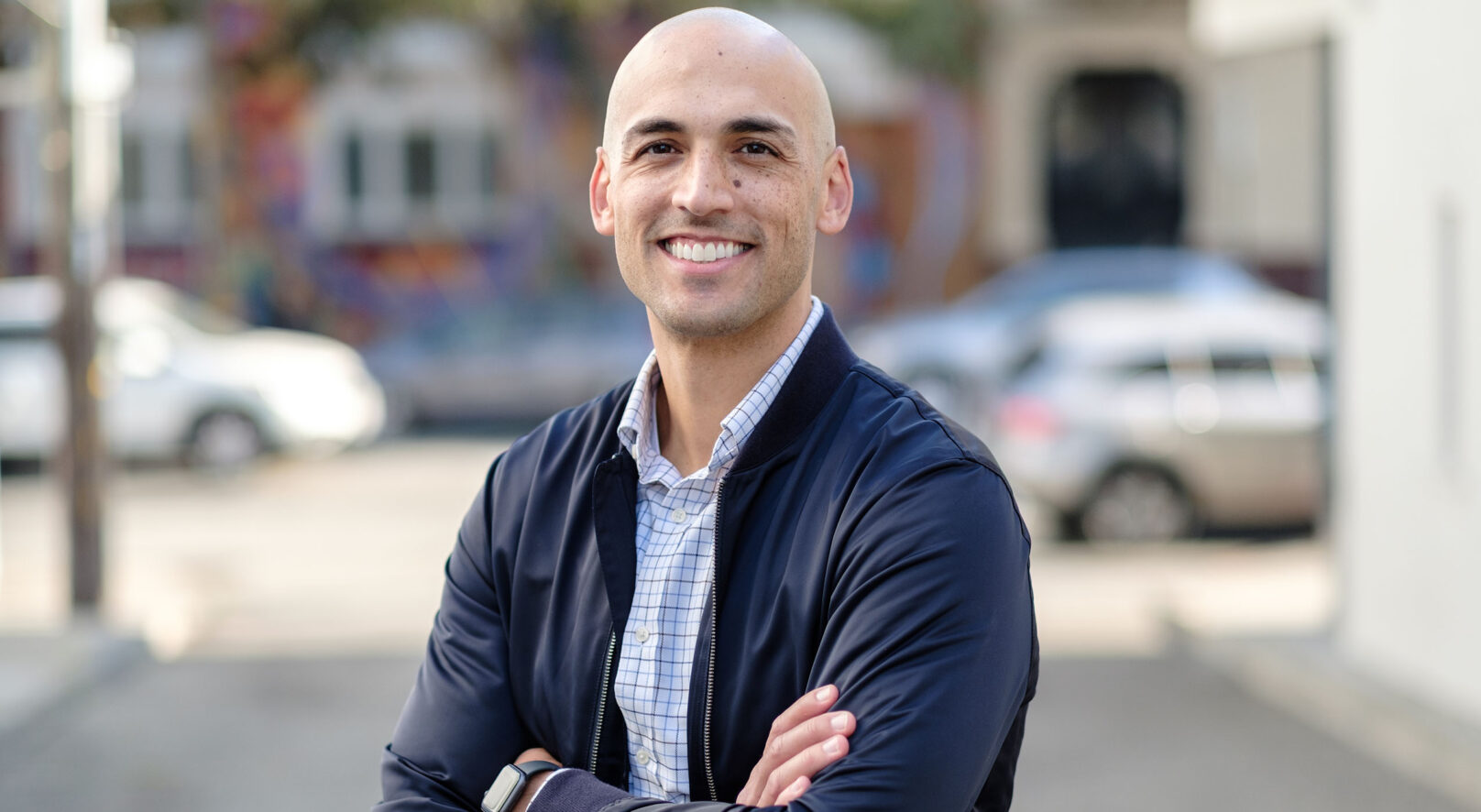Grounding Research and Change in the Community
August 23, 2022
Share
C&S Fellow Forrest Stuart on collaborative research design to understand and improve communities
Growing up as a kid in 1990s San Bernardino, Forrest Stuart, a 2015 Career Enhancement Fellow, saw for himself the way policing and poverty affected his community. As an undergraduate at UC Santa Cruz in the early 2000s, Dr. Stuart began attending small reading groups with Angela Davis around her publication of Are Our Prisons Obsolete? He started to think long and hard about what the world would look like if we didn’t need prisons or police.
“We wouldn’t see the kinds of collateral consequences that I saw in my hometown and affecting my own family,” says Dr. Stuart. “And that became my project. How can I, as a sociologist, as a public intellectual, as a social scientist, try to leverage the kinds of tools and privileges that I’ve been able to accumulate to try to build that world? And hopefully, before my time on the earth is over, we get a little bit closer to a world where people are supported enough that we don’t need such coercive agencies of violence and control in America.”

Dr. Stuart, recipient of a 2020 MacArthur Fellowship, is now associate professor of sociology at Stanford University and the director of the Stanford Ethnography Lab. He came to graduate school by way of community organizing, by working in prisons and doing prison advocacy. With that work, he admits—and with the vantage point it gave him on the colonial history of ethnography—, came some reluctance to become an academic.
Now, that perspective only further fuels his work as a public sociologist: “My embrace of sociology is my attempt, in a meaningful, serious way, to counteract that extractive, exploitative process.”
C&S Fellow wins 2022 Pulitzer Prize, bridges academic and nonacademic critical discourse
One of the methods Dr. Stuart employs to counter that history is participatory action research. When working in a community, he emphasizes collaborative research design, teaching community members the analysis and methods he’s learned so that they can work together to generate data and understanding.
“We produce the kinds of knowledge that they need to advance their, say, campaigns against police violence, or their campaigns to build more affordable housing, or their campaigns to provide more behavioral health services to homeless folks, rather than centering my needs of what I want to do in my career,” he says.
When working on his most recent book, Ballad of the Bullet: Gangs, Drill Music, and the Power of Online Infamy, Dr. Stuart kept his core principles at the forefront of his work, emphasizing the goal of benefiting the community. He also hopes his work will help shift public narratives, especially narratives about poverty.
“Rather than understanding impoverished communities as driven by people who don’t value success, I try to show with my work that adherence to the American Dream is actually more forceful and strong in disadvantaged communities,” says Dr. Stuart. “To attempt to achieve the same kind of societal goals and aspirations—like stability, dignity for family, success, worthiness, self-esteem—but being forced to do it in different ways: That for me is like the height of entrepreneurial-ism, the height of grit, the height of resilience.”
What a shift in this narrative means for the larger public discourse on impoverished communities is an erasure of unfounded justifications. “If we eliminate these moralizing, individualizing, culture-of-poverty-based explanations, then suddenly we’re left with the possibility that this person is a have only because this person is a have-not,” says Dr. Stuart. “Poverty exists in relation to non-impoverished people, and it forms a system. Everyone is implicated.”
Commonly held beliefs on what it means to be American and where opinions begin to diverge.
Dr. Stuart’s MacArthur Fellowship, which came with both public attention and a $600,000 unrestricted award, has pushed him to tackle a project he’s been envisioning for quite some time. He is headed back to Chicago and the East Bay Area to spend time with mothers who have lost children to gang and gun violence.
These mothers, Dr. Stuart points out, do “an amount of emotional and grievance work and community building and community support and just being rocks of a community. I realized that we need desperately for sociology to come up with a better and more sociological theory of trauma.” He adds, “I think we’ve neglected how the state is implicated in inflicting extra trauma on people, or not supporting people through trauma, or only allowing some people to grieve and not other people, based on their racial denigration or their neighborhood denigration, or the fact that the young man in their life was involved in crime.”
And, as with all his other work, Dr. Stuart is committed to keeping the project grounded in the community it is about. He is working to design the research in collaboration with community members, as well as social workers and psychologists: “I’m trying to think about how we can both do data collection and community support in the same kind of holistic package
Stay Engaged
Get More News
Join our mailing list to get more news like this to your mailbox.
Support Our Work
Help us invest in the talent, ideas, and networks that will develop young people as effective, lifelong citizens.
Ways to Support Us